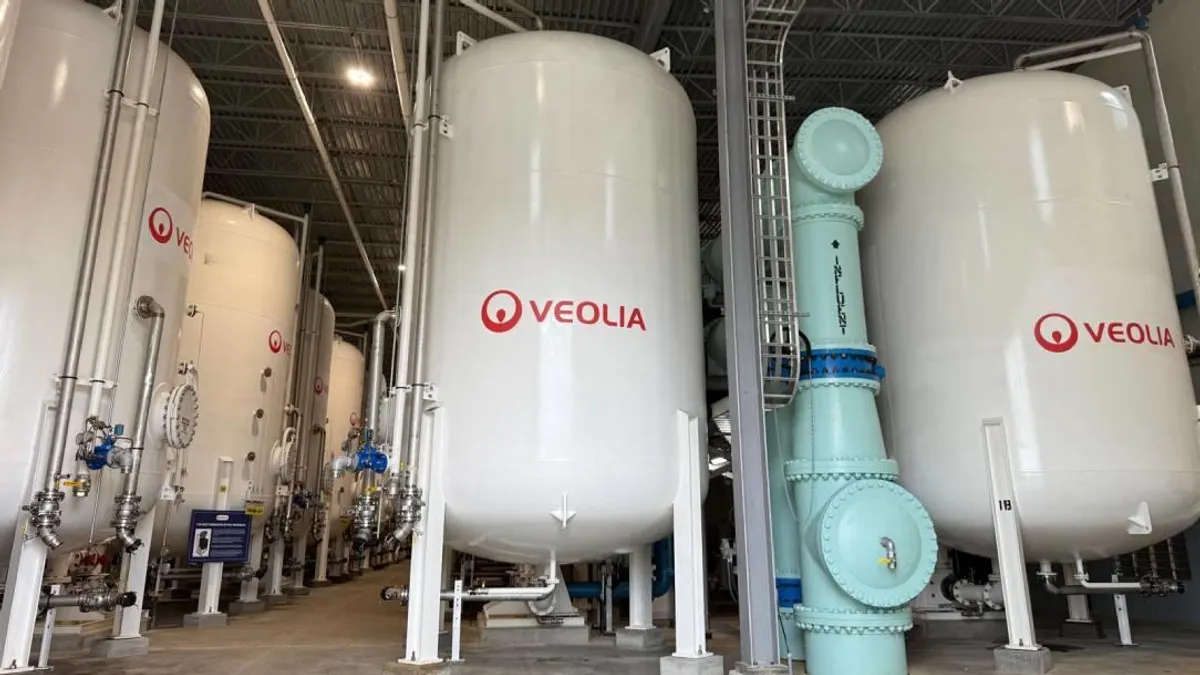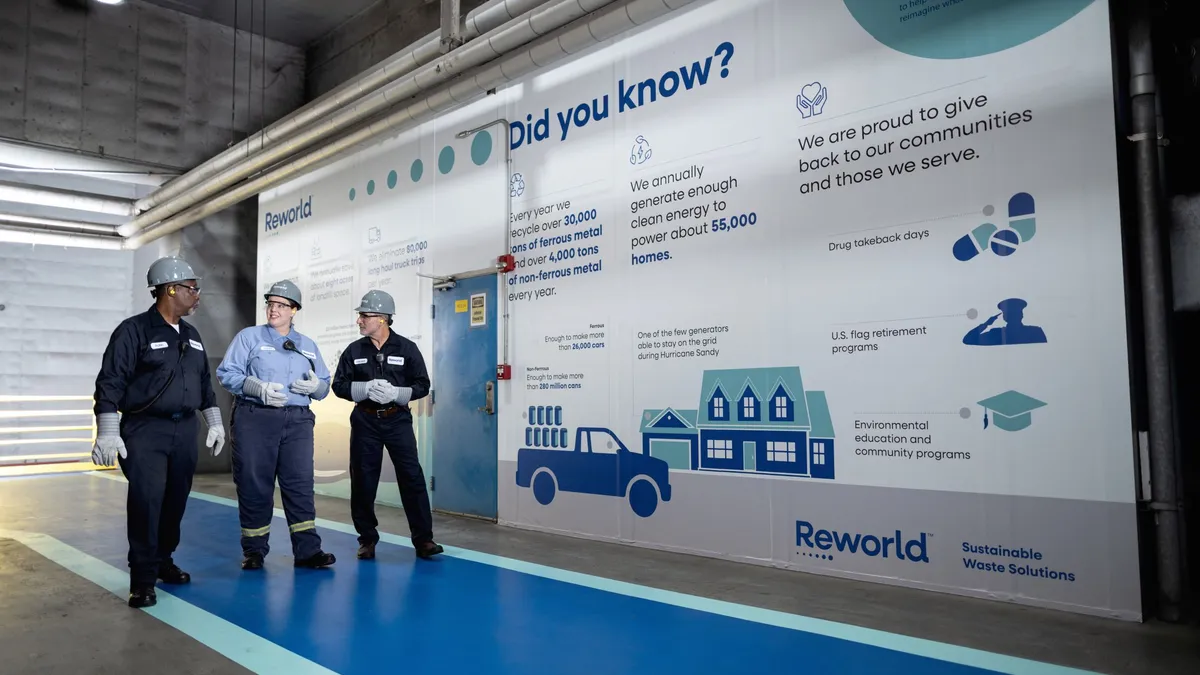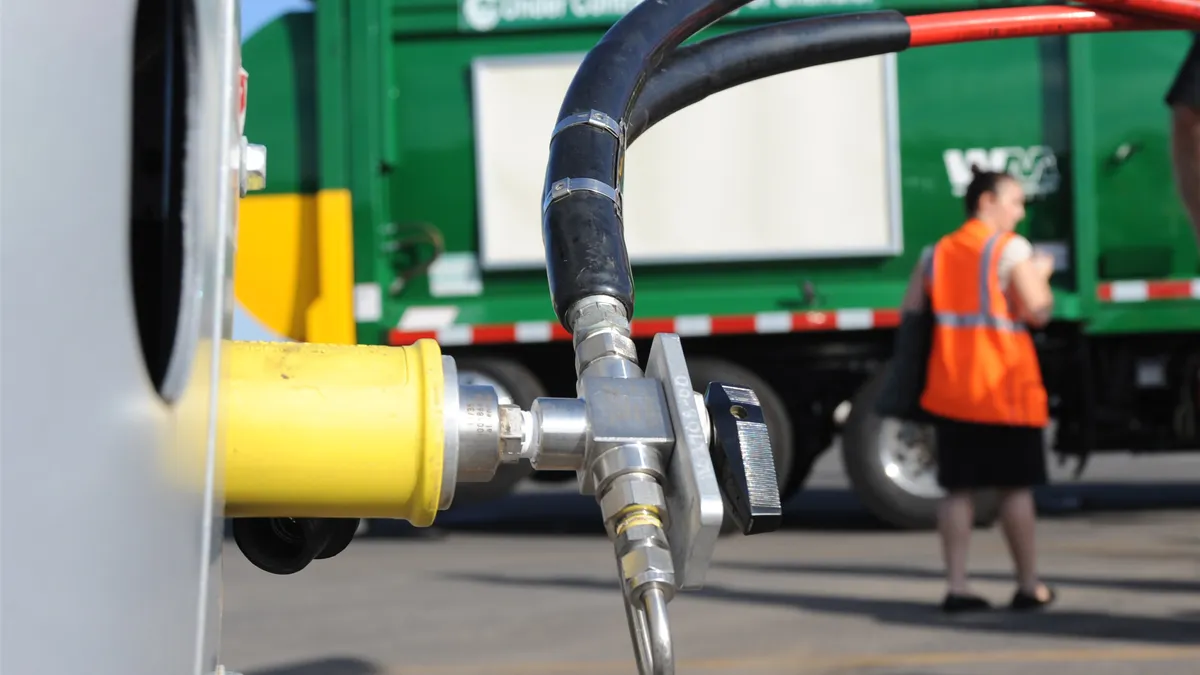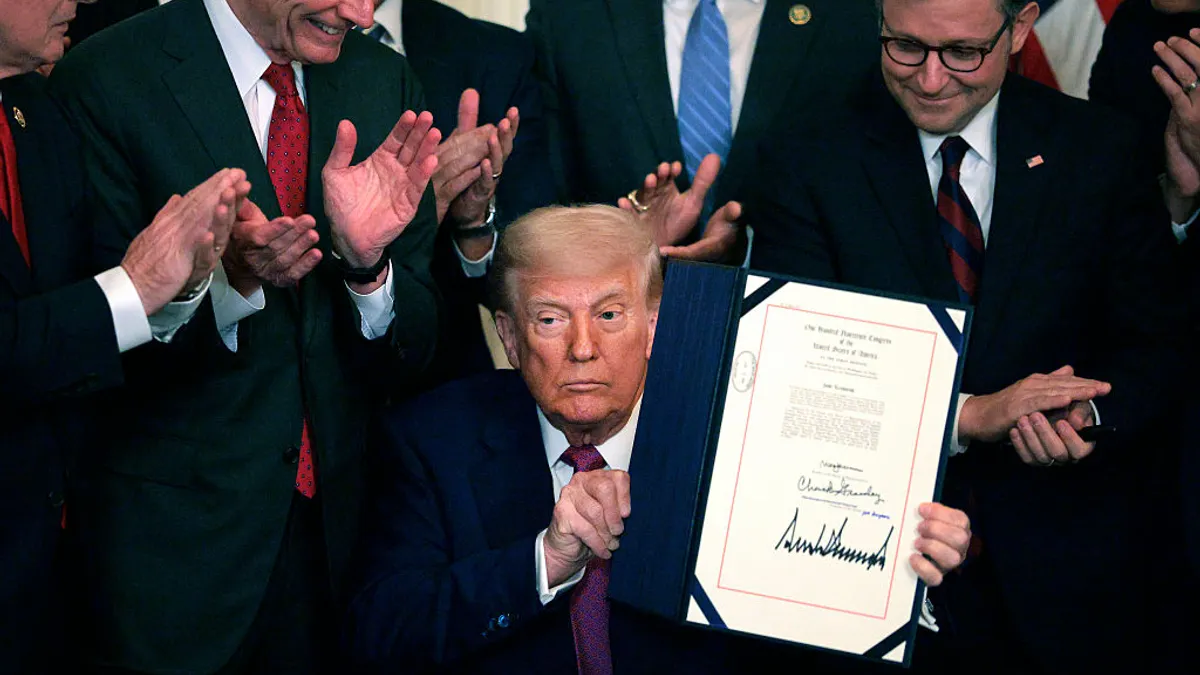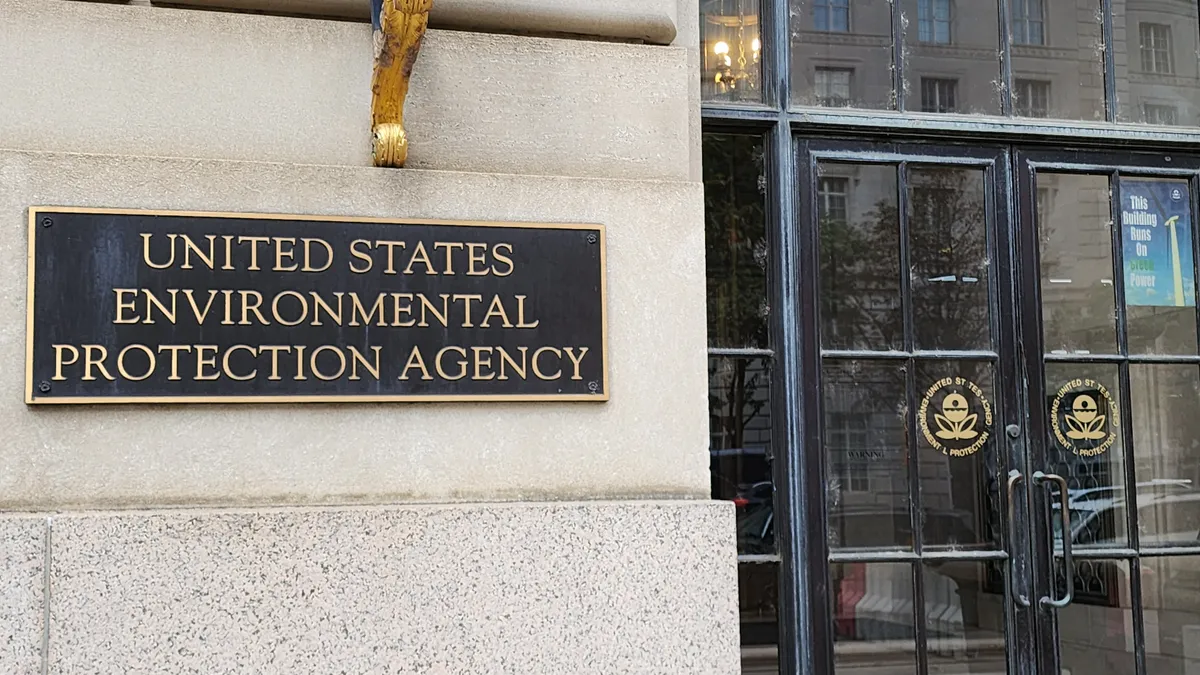Welcome to Scrap Collector, Waste Dive's Friday round-up of insights and stories you may have missed.
The Coalition of Australian Governments (COAG) has agreed on plans for an eventual ban on plastic, paper, glass and tire exports, Prime Minister Scott Morrison announced last Friday.
"There will be no export of plastics and paper and glass to other countries where it runs the risk of ending up floating around in our oceans," Morrison said at a press conference, as reported by the Guardian. "This stuff won’t change unless you say: 'There's going to be a point in time where you're not going to be able to put this stuff in a ship and send it off to someone else.'"
"We've got to start thinking about what we do when that happens," he added. "I would like that date to be as soon as is practicable."
The decision comes amid scrap import restrictions imposed by China and other governments, which have placed considerable strain on Australia's waste management infrastructure. According to the Guardian, the country spent $2.8 billion last year to export nearly 4.5 million metric tons of scrap, and many of its curbside recycling programs are also in jeopardy — Victoria landfilled thousands of metric tons of recyclables in the week after a local processor stopped accepting material.
Australia's ban stands in stark contrast to the U.S.'s consistent opposition to scrap trade restrictions. In a July 3 letter objecting to the OECD's proposed adoption of the Basel plastic amendment, U.S. EPA Administrator Andrew Wheeler noted that impeding transboundary movement of scrap "could reduce the level of recycling among OECD countries."
"If trade becomes difficult, we anticipate that more OECD-generated plastic scrap will be disposed in landfills, sent for incineration or used for fuel, which are less-preferred options on the waste-management hierarchy," Wheeler wrote.
His sentiments are, in fact, shared by various environmental groups monitoring Australia's announcement. While the National Toxics Network deemed the ban "long overdue," it also expressed concerns regarding the government's plans for unexported material — and whether the announcement is "designed to distract from a major government push to burn Australia’s waste in polluting incinerators."
"Australian state governments are fast tracking approvals for [incineration] without adequate climate, health and environmental impact assessment processes, without any social license to operate and without safeguards for vulnerable local governments," said Jane Bremmer, coordinator of Zero Waste Australia, in a statement. The plan, she added, must be treated with skepticism unless the government establishes a concurrent ban on incineration, as well as the export of "stealthy" waste (e.g., processed engineered fuel), to other countries.
Australian states have implemented "zero waste to landfill" policies while failing to simultaneously invest in the reuse, recycling and composting sectors, Bremmer told Waste Dive — a trend that, coupled with global recycling market volatility, has pushed the government to ramp up investment in incineration. The country's first WTE facility (a Veolia project co-developed by Phoenix Energy Australia and Macquarie Capital) is slated to begin operations by the end of 2021, and various other large-scale projects — including Victoria's first incinerator — are also in the works.
Alastair Iles, associate professor of environmental policy and societal change at UC Berkeley, expressed reservations over the Australian government's "appalling" environmental track record.
"In principle [the export ban is] an excellent initiative — but it comes from an extraordinarily conservative federal (Liberal) government headed by Prime Minister Scott Morrison," he told Waste Dive in an email. "[I]t is trying to prolong the coal mining and electricity industry, doesn't believe strongly in climate change, doesn't like renewable energy, and hasn't acted to restrict biodiversity loss from land clearing."
The ban, said Iles, can be read as a response to recent protests in Southeast Asian countries over contaminated Australian scrap shipments: "More and more Australians are getting very concerned about waste issues and about the likelihood that their recycling efforts are in vain. So state governments are under pressure, and some of the states were pressing the federal government for action."
There are signs that the government is looking to expand national recycling infrastructure. The prime minister announced this week the allocation of $20 million to bolster Australia's recycling industry and transition away from exports — the bulk of which, according to Australian Council of Recycling CEO Peter Shmigel, will go toward research and design.
Shmigel also praised the government's export ban.
"It makes absolute strategic sense that Australia also says, 'Why don't we stand on our own two feet, when it comes to recycling?" he told Business Insider Australia. "We're really good at collecting the material for councils and businesses et cetera but now we just have to get a lot better at actually reprocessing it and making it into new products."
Iles noted, however, that states haven't displayed much interest in spurring development of domestic recycling capacity. The Victorian state government, for instance, holds $400 million (generated from a landfill levy) in its Sustainability Fund — but has "only made relatively small funding promises and is refusing to build a publicly-owned facility that could solve many of the problems."
Either way, Australia's next steps could serve as a model for other countries — particularly those considering similar policies. While Canadian Environment Minister Catherine McKenna dismissed the idea of banning plastic scrap exports earlier this month, the Canadian Press reported on Tuesday that her department is exploring additional ways to reduce Canadian waste overseas — including via export limits.
AROUND THE WORLD
"I Just Can't Wait (to Be in a Landfill)" — designboom
Mufasa may wax poetic about the circle of life, but Australian designers Tom Whitty and Alex Wadelton know that mass production of cheap plastic toys goes strictly one way — straight into the landfill. In protest of supermarket Woolworths' promotion of Lion King "ooshies" (plastic pencil toppers shaped like Lion King characters), the two activists used the wildly popular collectibles to recreate scenes from the movie — with one key difference:
Rather than ruling over the Pride Lands, the Lion King avatars are doomed to roam landfills for the duration of their (very long) plastic lives: Mufasa gazes out at his kingdom atop a plastic bottle Pride Rock; Simba, Timon and Pumbaa "hakuna matata" across a discarded toothbrush and crumpled paper balls; Simba and Nala feel the love tonight amidst an amorous array of cigarette butts, bottle caps and plastic wrappers.
"The manipulation of Australian families to increase their consumption is ethically questionable to begin with. Throw in reckless eco vandalism and you've got yourself a morally bankrupt stew going," said Whitty. "For hundreds of years, these toys will remain a symbol of corporate greed and an abandonment of environmental responsibility. Mufasa would be rolling in his grave."
Modi calls for single-use plastics ban — Down to Earth
Indian Prime Minister Modi emphasized plastic waste reduction in his Independence Day speech on Thursday, promising a "significant step" toward a single-use plastics ban on October 2.
According to Down to Earth, the environment ministry is working to implement central, nationwide legislation that will unify plastics bans from more than 20 states. The move would place India on a growing list of countries seeking to curb single-use plastics — including Canada, EU members and neighboring Pakistan.
Modi also urged Indians to do their part in addressing plastic pollution, reported CNN.
"If you see single-use plastic at home or on the road, help the municipal authorities in your towns and villages to clean it up," he said, calling on entrepreneurs, technicians and industrialists to find ways to recycle plastics.
It's not the government's first time decrying plastic pollution — then-environment minister Harsh Vardhan declared on World Environment Day 2018 that India would attempt to phase out single-use plastics by 2022.
SEEN & HEARD
So. What’s the walk to get a burrito after work like in your town? #trashcity pic.twitter.com/bNENEdB92J
— Moses Gates (@MosesNYC) August 12, 2019
Article says cups would have to be reused 20-100 times to break even carbon-wise but that seems entirely likely to happen, no? And what about the radical idea that you could just bring a cup from home you already own rather than buying something new that is reusable?
— Beyond Plastics (@PlasticsBeyond) August 13, 2019
SFO: bans the sale of plastic bottles in the airport
— Rachel Becker (@RA_Becks) August 6, 2019
Thirsty PR pitches in my inbox: BUY OUR BOTTLES SAVE THE PLANET
????










